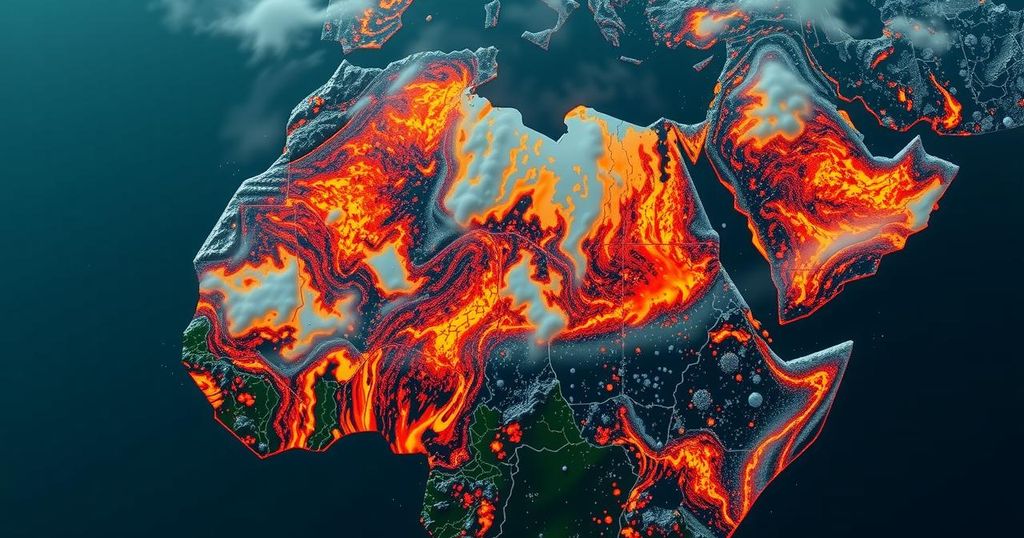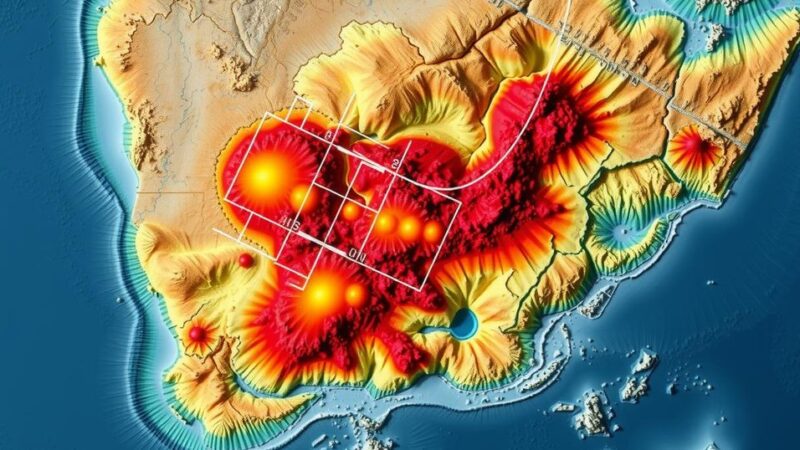Recent floods in Cameroon, Chad, Niger, Nigeria, and Sudan have been intensified by climate change, leading to approximately 1,500 deaths and displacing over 1 million people. Research indicates that global warming has increased rainfall intensity by 5-20%, and such extreme weather could become annual if temperatures continue to rise. Experts are calling for greater investment in early warning systems and dam improvements, particularly at the upcoming COP29 climate talks.
On October 23, 2023, a team of international scientists reported that the recent catastrophic rains leading to floods in Cameroon, Chad, Niger, Nigeria, and Sudan were intensified by human-induced climate change. According to research from World Weather Attribution (WWA), global warming has augmented the seasonal precipitation this year by approximately 5-20% across the Niger and Lake Chad regions. The researchers noted that if global temperatures continue to rise, such extreme rainfall events could become increasingly common, potentially occurring annually. Izidine Pinto, a researcher at the Royal Netherlands Meteorological Institute, asserted, “Spells of heavy summer rainfall have become the new normal in Sudan, Nigeria, Niger, Cameroon and Chad.” This past year’s flooding has tragically resulted in approximately 1,500 fatalities and displaced over 1 million individuals across West and Central Africa, as reported by the United Nations aid agency, OCHA. The severe rainfall events have led to the failure of dams in countries such as Nigeria and Sudan, further exacerbating the humanitarian crisis. The WWA cautioned that if global warming reaches a threshold of 2 degrees Celsius (3.6 degrees Fahrenheit) by the 2050s, the regions in question could anticipate similar torrential downpours almost every year. This situation underscores the urgent need for enhanced investments in early warning systems and upgrades to existing dam infrastructures. Joyce Kimutai, a researcher at the Centre for Environmental Policy at Imperial College London, highlighted, “Africa has contributed a tiny amount of carbon emissions globally, but is being hit the hardest by extreme weather.” She further emphasized the critical role of the upcoming COP29 climate talks in November, urging wealthier nations to provide significant financial assistance to mitigate these impacts.
The article addresses the increasing severity of rainfall and flooding in various African countries, attributing the phenomenon to human-caused climate change. It highlights specific regional impacts on populations and infrastructure, quantifies the destruction and displacement caused by floods, and emphasizes the urgent need for international support and investment in climate resilience measures. This report contributes to a broader understanding of how climate change disproportionately affects vulnerable regions, despite their minimal contribution to global carbon emissions.
In conclusion, the report identifies the alarming increase in the intensity of rainfall in flood-afflicted regions of Africa due to climate change. The analysis highlights the devastating effects on human life and infrastructure, underscoring the urgent call for international aid and investment in climate adaptability measures. As the threat of annual devastating rains looms with rising global temperatures, it is imperative for worldwide leaders to take decisive action at climate negotiations, particularly in supporting the affected countries of Africa.
Original Source: www.cnbcafrica.com







